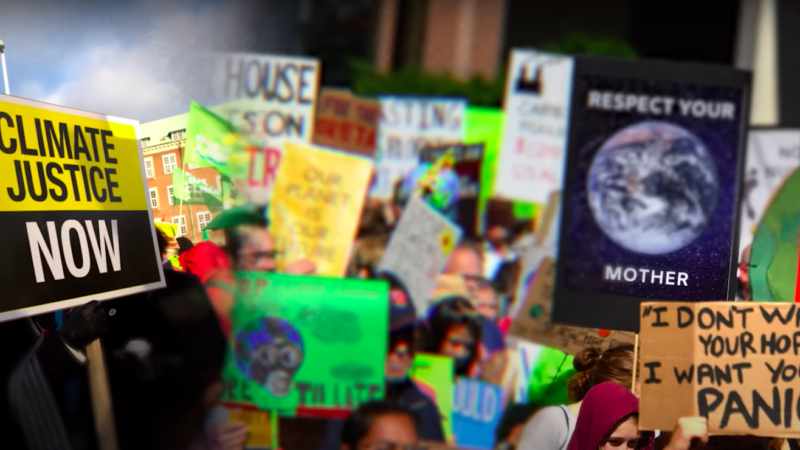When Sri Lanka Banned Synthetic Fertilizers, the Country Imploded
Green activists have some good points. But the pursuit of a chemical-free world hurts vulnerable people the most.

Starvation. Poverty. People struggling to buy medicine and fuel.
Disaster happened after one government fell under the influence of the world's environmental extremists.
Many "experts" say pure nature is best. United Nations officials now tell politicians that the climate "crisis" demands countries make all sorts of sacrifices, like cutting nitrogen waste.
Much of that waste comes from synthetic fertilizer, so activists applauded when Sri Lanka's government decided to become the first country to really take their advice. Sri Lanka banned all synthetic fertilizers.
Oops.
Suddenly, the same farms produced much less food. Food prices rose 80 percent.
One result: riots. As my new video shows, thousands swarmed the president's mansion. Some had a cookout on his lawn.
The president resigned and fled the country.
It turns out that we need chemical fertilizers.
Environmental writer Michael Shellenberger says if countries listened to today's green activists, there would be mass starvation.
"We could only support two to three billion people on earth if we just relied on natural fertilizers like manure….There's eight billion people."
"Why can't we just make more organic manure?" I ask.
"It takes twice as much land to produce all the cows that you need to get the manure," he explains. "Synthetic fertilizers are a friend to saving nature because they reduce how much land we need."
Now the environmental purists make excuses for Sri Lanka.
Mother Jones said it's "ridiculous to single out [the fertilizer ban] as the 'underlying' cause, as Shellenberger did." Others say that Sri Lanka just needed time to adjust to organic farming.
"You might be able to become poorer over five or 10 years, rather than over six months," replies Shellenberger. "But the result will be the same."
I push back. "There were other causes of the problems: higher oil prices, COVID, other stuff happened."
"But those same problems affected other countries where the economies did not collapse," he replies. "What made the difference in Sri Lanka was its fertilizer ban."
We are right to worry about chemical fertilizer. Not only is the nitrous oxide it emits a greenhouse gas, but when nitrogen runs off into waterways, it can kill fish.
"Absolutely. We should be concerned," says Shellenberger. "But that's best dealt with through a gradual process of farmers getting better at applying the fertilizer."
Farmers are already doing that. Fertilizer is expensive, so farmers have an incentive not to waste it.
"We know you can significantly reduce pollution while producing the same amount of food," Shellenberger points out. In the Netherlands, "They reduced fertilizer pollution by 70 percent."
But that still wasn't enough for environmental zealots in the Dutch government. They want to force farmers to cut nitrogen emissions by another half, even though they admit that will force 11,000 farms to shut down.
"[This green extremism] is out of control," says Shellenberger. "You would think that Sri Lanka would be a wake-up call. But we haven't seen any slowdown."
Fortunately, most countries don't yet embrace the zealot's most destructive ideas, like banning synthetic fertilizer or the Green New Deal's demand for 100 percent renewable energy.
But many countries closed nuclear plants.
And President Joe Biden killed pipelines, stopped a long-planned sale of offshore oil rights, and imposed a moratorium on new oil and gas leases on public lands.
This is a war on affordable energy.
"We're in the worst energy crisis in 50 years," says Shellenberger. "Yet governments are trying to make energy more scarce and expensive. It's totally insane. There's no other word for it."
The pursuit of a chemical-free world is insane. Modern technologies like synthetic fertilizer make people's lives better. They especially make poor people's lives better. Banning them brings disaster.
The hardcore environmental left got its way in Sri Lanka. Let's hope they don't destroy more countries.
COPYRIGHT 2022 BY JFS PRODUCTIONS INC.


Show Comments (59)